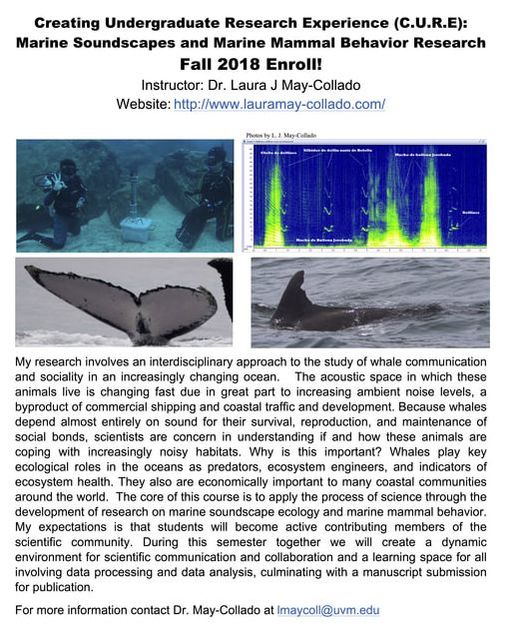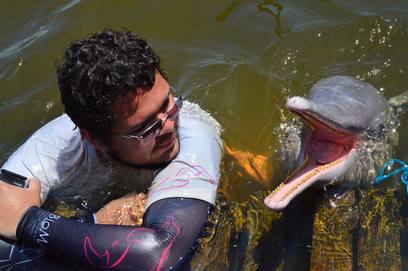Biologist Laura May Collado Named President's Distinguished Lecturer
"Evolution teaches students that they and all living things have the same common ancestors, and that they and their fellow humans are much more similar than they are different. The genetic variation within the groups that we designate as races is much larger than that between those groups. Imagine a world in which every student learns this." Ann Reid, Nature
Courses
|
CURE course students share they research projects here: http://blog.uvm.edu/lmaycoll/ |
Workshops
RIEMMCCA: Network of Marine Mammal Specialists of Central America and the Caribbean
Subject: Review of the State of Knowledge of the Marine Mammals of Central America and the Caribbean. San Francisco, December 2015. Biennial of the Biology of Marine Mammals.
Unmanned Aerial Systems: Powerful and Cost-Effective Tools for Marine Science and ConservationSubject: The intent of this workshop is to review the state-of-the-art for regulations, hardware, software, and data management in studies of marine species using various types of remotely-controlled or autonomous aerial platforms.San Francisco, December 2015. Biennial of the Biology of Marine Mammals.
Drones: a promising non-invasive method to study dolphin behavior and the impact of whale watching activities SOLAMAC, Colombia Cartagena November 29, 2014
Subject: Review of the State of Knowledge of the Marine Mammals of Central America and the Caribbean. San Francisco, December 2015. Biennial of the Biology of Marine Mammals.
Unmanned Aerial Systems: Powerful and Cost-Effective Tools for Marine Science and ConservationSubject: The intent of this workshop is to review the state-of-the-art for regulations, hardware, software, and data management in studies of marine species using various types of remotely-controlled or autonomous aerial platforms.San Francisco, December 2015. Biennial of the Biology of Marine Mammals.
Drones: a promising non-invasive method to study dolphin behavior and the impact of whale watching activities SOLAMAC, Colombia Cartagena November 29, 2014


